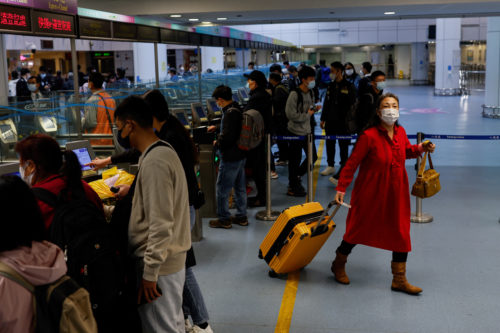Protest-free Macau is rewarded by Beijing
Macau might become richer than it already is from gambling revenues, because it is being given special treatment by the central government in Beijing. General Secretary Xí Jìnpíng 习近平 visited Macau to mark the anniversary of the handover, and brought with him a series of policies to diversify Macau’s economy.


Photo credit: The China Project illustration by Derek Zheng
Macau is a small autonomous territory 40 miles to the west of Hong Kong, which was leased to the Portuguese Empire by China’s Ming dynasty in 1557. On December 20, 1999, Portugal relinquished its rule over Macau to China. The 20th anniversary of this handover was marked this month.
Gambling has been legal in Macau since the 1950s, and it is still the only place in the People’s Republic of China where citizens can legally bet away their fortunes. Taxes from gambling have risen from about half to as much as 70 percent of government revenue in recent years, leading to riches so great that the Macau government gives out over $1,000 in cash handouts to every citizen and permanent resident every year.
Macau might become richer still because it is being given special treatment by the central government in Beijing. General Secretary Xí Jìnpíng 习近平 visited Macau to mark the anniversary of the handover, and brought with him a series of policies to diversify Macau’s economy.
The policies — as described by the Greater Bay Insight, a website focused on analyzing the Chinese government’s plan to connect Hong Kong, Macau, and nine cities in mainland China into a megaregion — include:
- Support for the development of Hengqin, a special economic district outside Macau’s borders leased to Macau.
- Encouragement from the Chinese banking regulator for Macau-based banks to conduct business in mainland China.
- Facilitation of cross-border investment flows, and support for the development of Macau’s finance industry.
- A feasibility study on establishing a Macau Stock Exchange, which would be denominated in China’s currency, the yuan.
Xi’s visit and the economic incentives are meant to send a “signal to Hong Kong,” said Richard McGregor, a senior fellow at Sydney-based think tank the Lowy Institute, to CNBC:
I think it’s trolling Hong Kong if you like, it’s attempting to say “look, you think you’ve got some special services that you offer China, well we can put them in Macau.”
Not everyone is happy about Macau’s future direction: SupChina’s correspondent Eduardo Baptista writes that many in the city continue to feel “saudade” — a Portuguese word meaning intense longing for something absent — for the slower, colonial past.





